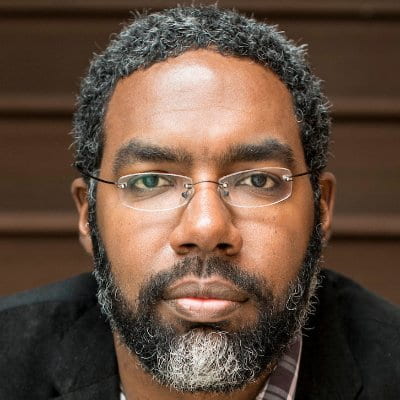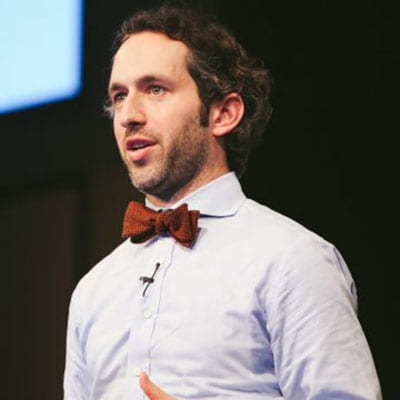Keynote Speakers

Amanda Cox
Amanda Cox is a data editor at the New York Times. Beginning as a graphics editor in 2005, she has played a central role in the development of the Times’s data visualization efforts. Cox now guides how Computer-Assisted Reporting, The Upshot, Graphics, Interactives, data and statistics interact across the newsroom. In 2009, she was awarded the National Design Award and the Excellence in Statistical Reporting Award from the American Statistical Association in 2012.

Deen Freelon
Deen Freelon is an associate professor in the UNC Hussman School of Media and Journalism. Focusing on political expression through digital media as well as data science and computational methods for analyzing large digital datasets, Freelon has written both extensive scholarly literature as well as research-grade software. He has served as principal investigator on grants from the Knight Foundation, the Spencer Foundation and the U.S. Institute of Peace.

David Rothschild
David Rothschild is an economist at Microsoft Research. Exploring questions of mapping and updating public opinion, the market for news, the effect of advertising, finance, and an economist take on public policy, Rothschild works at the intersection of Economics and Social Science. He is a fellow at the Applied Statistics Center at Columbia and the Penn Program on Opinion Research and Election Studies.
Panel: Forecasting & Risk Meets Journalism
Journalists are increasingly producing complex forecasting models to predict election, economic, and other socially relevant outcomes. Such models hinge on understandings of human behavior under risk, making them tricky to build, evaluate, and communicate. Panelists will share their experiences as journalists who are deeply involved in modeling and explaining political and economic risks to help newsreaders and others make better decisions.

David Byler
Washington Post
Bio
David Byler is a data analyst and political columnist focusing on elections, polling, demographics and statistics. He joined The Washington Post in 2019. Before joining The Post, Byler was chief elections analyst and a staff writer at the Weekly Standard, where he covered House, Senate, gubernatorial and presidential elections using statistics and other quantitative tools. He previously worked as an elections analyst at RealClearPolitics.

Micah Cohen
FiveThirtyEight
Bio
Micah Cohen is FiveThirtyEight’s managing editor and previously wrote for FiveThirtyEight at The New York Times.

Allison Schrager
Quartz, Author of An Economist Walks Into a Brothel
Bio
Allison Schrager is an economist, journalist at Quartz, co-founder of LifeCycle Finance Partners, LLC, a risk advisory firm, and author of the book, An Economist Walks into a Brothel. Allison diversified her career by working in finance, policy, and media. She led retirement product innovation at Dimensional Fund Advisors and consulted to international organizations, including the OECD and IMF. She has been a regular contributor to the Economist, Reuters, and Bloomberg Businessweek. Her writing has also appeared in Playboy, Wired, National Review and Foreign Affairs. She has an undergraduate degree from the University of Edinburgh and a PhD in economics from Columbia University. She teaches at New York University and lives in New York City.

Nick Diakopoulos (Chair)
Northwestern University
Bio
Nicholas Diakopoulos is an Assistant Professor in Communication Studies and Computer Science (by courtesy) at Northwestern University where he is Director of the Computational Journalism Lab (CJL). He is also a Tow Fellow at Columbia University School of Journalism as well as Associate Professor II at the University of Bergen Department of Information Science and Media Studies. He received his Ph.D. in Computer Science from the School of Interactive Computing at Georgia Tech where he co-founded the program in Computational Journalism. His research is in computational and data journalism with active research projects on (1) algorithmic accountability and transparency, (2) automation and algorithms in news production, and (3) social media in news contexts. He is the author of Automating the News: How Algorithms are Rewriting the Media from Harvard University Press, and the co-editor of Data-Driven Storytelling, from CRC Press.
Panel: Conveying a Clear Message and Uncertainty with Graphics
Traditional newspaper data graphics have used simplified charts to convey one or two core messages. However, most data and model predictions are subject to uncertainty. Responsible presentation of data to newsreaders calls for also communicating such uncertainty to support more informed decisions. The panelists will discuss the tension between goals of parsimony and narrative versus uncertainty and complexity, sharing strategies and examples from their own work.

Jen Christiansen
Scientific American
Bio

Catherine D’Ignazio
MIT
Bio
Catherine D’Ignazio is an Assistant Professor of Urban Science and Planning in the Department of Urban Studies and Planning at MIT. She is also Director of the Data + Feminism Lab which uses data and computational methods to work towards gender and racial equity. D’Ignazio is a scholar, artist/designer and hacker mama who focuses on feminist technology, data literacy and civic engagement. She has run reproductive justice hackathons, designed global news recommendation systems, created talking and tweeting water quality sculptures, and led walking data visualizations to envision the future of sea level rise. With Rahul Bhargava, she built the platform Databasic.io, a suite of tools and activities to introduce newcomers to data science. Her forthcoming book from MIT Press, Data Feminism, co-authored with Lauren Klein, charts a course for more ethical and empowering data science practices.

Sam Petulla
CNN
Bio

Alberto Cairo (Chair)
University of Miami
Bio
Alberto Cairo is the Knight Chair in Visual Journalism at the University of Miami and director of visualization at UM’s Center for Computational Science. After a long career in journalism in Spain (elmundo.es) and Brazil (Editora Globo) he became a professor, consultant, and author. He has consulted for companies and institutions such as Google, Microsoft, the Congressional Budget Office, and the Centers for Disease Control and Prevention. He is the author of numerous books about visualization. The most recent ones are ‘How Charts Lie: Getting Smarter About Visual Information’ (2019), and ‘The Truthful Art: Data, Charts, and Maps for Communication’ (2016). His Twitter account is @albertocairo and his weblog is www.thefunctionalart.com.


